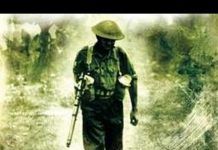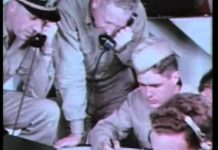More journalists were sent to cover the beginning of the Iraq Invasion in the early 2000’s than were in Vietnam at the height of that war, and they were given more access both in governmental allowance and via more advanced technological means than they had ever had before. ABC Australia’s documentary Operation Persuasion looks to dissect just that – what has changed in the war coverage game, and how the proliferation of information and our access to it has changed the way we view that coverage. After the negative press fallout of the Vietnam War, the U. S. military leadership had been very wary in what it allowed press to have access to in their operations. The Tet Offensive being portrayed as an utter failure, despite the overwhelming victory American forces actually achieved, is cited as the breaking point in military leader faith in the homeland press. The numerous military operations that occurred throughout the 1980’s were well shielded from the press as a result, and this policy remained in place until Desert Storm, the first United States Iraqi invasion under George Bush Sr. Following that experience, where they were able to wage a relatively “smart” war of precision missile and air strikes that painted the military actions in a more favorable light, their resistance to press coverage eased considerably. That positive experience led to similarly eased policies heading into the George W. Bush-led U. S. invasion of Iraq, where they had decreed the intent to locate and finally remove Iraqi dictator Saddam Hussein from power. The results were not nearly as ideal this time around, as networks with less American-minded coverage angles such as the United Kingdom’s BBC network and the upstart news network out of Qatar, Al Jazeera, did not shy away from showing gruesome imagery of civilian injuries in Baghdad and similar stories that created sympathy for Iraq. The ease of access to information, and the constant bombardment of public sentiment with it, led to a criticism of the military campaign that the public had never had the resources to stage – questioning of the validity of intelligence cited as the reasoning to start the war in the first place. Whether Hussein actually had weapons of mass destruction, or was near the capability to create them, was the reasoning Bush cited for invasion, and that almost immediately came under fire as a blatant falsehood.
POPULAR PICKS
LATEST ADDITIONS
© Copyright 2017-2022 - Gratis Global Ltd. All rights reserved.

































